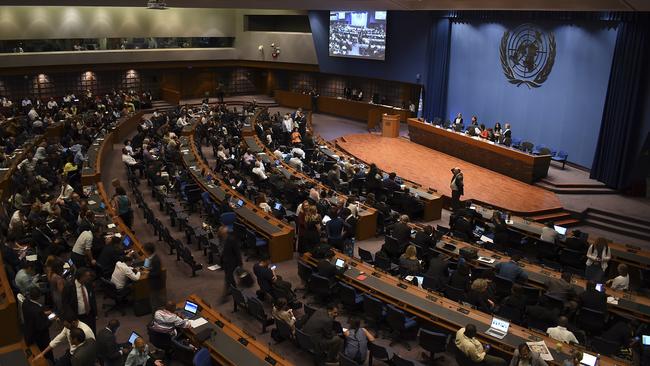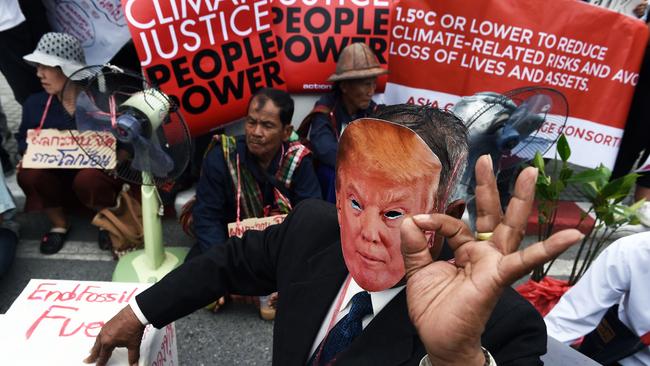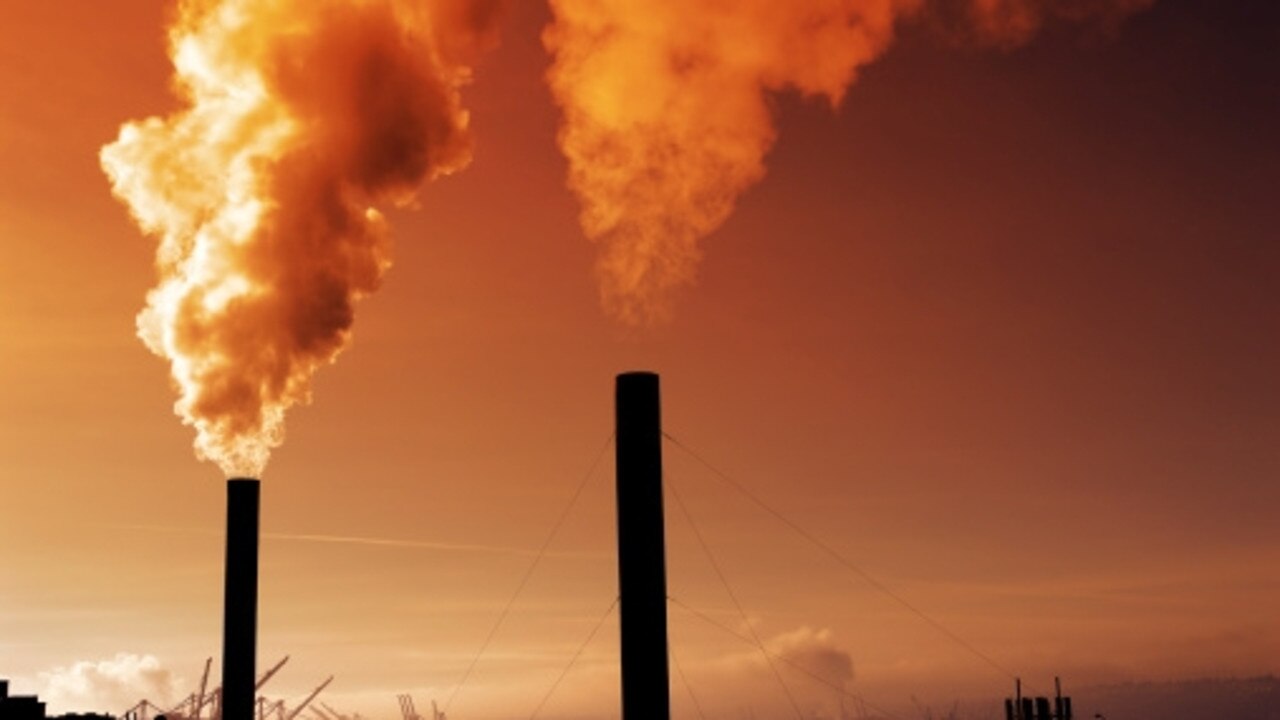Bangkok climate talks end in stalemate
The US and Australia have been accused of stalling negotiations on a $US100bn climate change fund, putting the Paris Agreement in jeopardy.

The United States and Australia have been accused of working to stall negotiations on a $US100 billion a year climate change fund and put the Paris Agreement in jeopardy.
An emergency meeting of climate delegates in Bangkok ended last night with claims the talks had been “beset with tension”.
Key issues remained “stalemated” and the future of the Paris deal was “on the brink”, climate groups said.
The central concerns were how a promised $US100bn a year would be provided by developed countries from 2020 and how transparent developing countries should be in the actions they were taking.
The $US100bn a year fund sits at the core of the Paris Agreement and remains a key stumbling block to success at landmark talks scheduled for Poland in December.
The Poland meeting is supposed to deliver a rule book on how the Paris Agreement will be implemented and monitored. Without a firm commitment on finance for developing countries the meeting is unlikely to succeed. The six-day meeting in Bangkok had been expected to adopt a completed text that could be presented at the COP24 conference in Katowice, Poland, three months from now.
Turmoil has already gripped the body established to distribute the limited funding that had been raised to date.
A meeting of the Green Climate Fund in July disintegrated in acrimony over who should control the money, leading to the resignation of the Australian chair Howard Bamsey.
In Bangkok, US negotiators were accused by African delegates of “poisoning” the talks despite President Donald Trump’s stated intention to withdraw from the Agreement.
Any formal US withdrawal will not be decided until November next year and if it went ahead would not take effect until November 2020.
In the meantime, the US has said it would continue sending a negotiating team to the United Nations and IPCC gatherings.
During the Bangkok talks, some countries called for the US to be sidelined from negotiations.
On the issue of finance, however, the US has not been a lone voice.
The US position on financing has been supported by Australia, Japan and the European Union, countries that will be called upon to foot the bill.
Negotiators said a key issue had been whether loans could be counted as part of the $US100 billion a year financing promise.

Statements made at the end of the Bangkok talks said progress had been “uneven”.
Non-government groups were critical of the tactics used by developed countries.
“Finance to developing countries — to both help them cut their greenhouse gas emissions and to support poor communities vulnerable to extreme climate shocks — remains a critical, unresolved issue,” Oxfam policy analyst Tracy Carty said.
“If developed country governments don’t step up by the time COP24 (the Poland meeting) kicks off in December, they risk putting the Paris Agreement in jeopardy,” she said.
Harjeet Singh, of ActionAid International said the Paris Agreement was “on the brink”.
“Developed countries are going back on their word and refusing to agree clear rules governing climate finance,” Singh said.
Singh said wealthy and developed countries “led by the United States and including countries such as Australia, Japan and even the European Union” refused to clearly show “how much money they are going to provide and how that is going to be counted”.
“If they remain stuck in their positions and fail to loosen their purse strings, this treaty may collapse.”
Greenpeace said the Bangkok talks had been “beset with tension.”
“Progress has slowed, leaving the heavy lifting for Poland,” a Greenpeace statement said.
Veteran climate change campaigner, Alden Meyer from the Union of Concerned Scientists said negotiators had been “stalemated” on the core issues of finance and transparency.
The Paris deal, struck in 2015, aims to limit global temperature rises to less than two degrees Celsius and to below 1.5C if possible by the end of the century.




